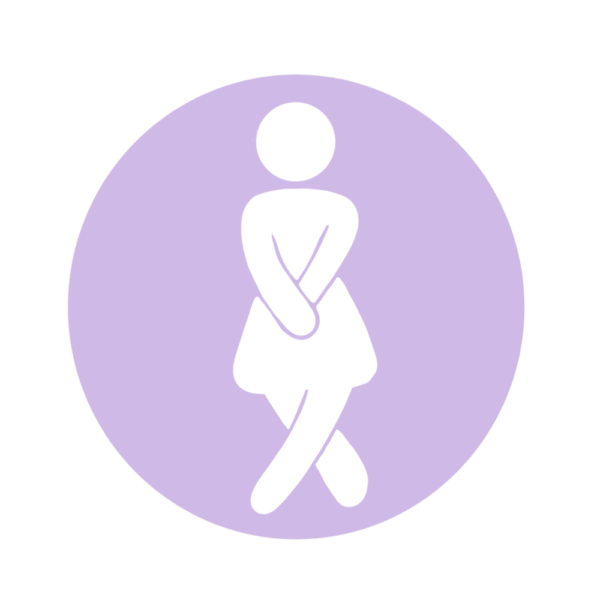Incontinence
Pregnancy symptoms

Bladder and bowel control problems are common symptoms during pregnancy and after giving birth. In fact, around 1 in 3 women who ever had a baby, later wet themselves occasionally.
Detecting the problem
During pregnancy, various bladder and bowel problems are attributed to weak pelvic floor muscles.
If you have weak pelvic floor muscles you might:
- Leak urine when you cough, sneeze, lift, laugh, or exercise
- Be unable to control the passing wind
- Feel an urgent need to empty your bladder or bowel
- Leak bowel motion after you have been to the toilet
- Have trouble cleaning yourself after a bowel motion
- Find it hard to pass a bowel motion unless you change position or use your finger to help
- Feel a lump in your vagina or a sensation of dragging (mostly at the end of the day), suggesting that one or more of your pelvic organs might be sagging down
Assessing bladder and bowel problems
Despite having an easy birth, some women tend to experience more bladder and bowel problems such as irritable bowel syndrome or an urgent need to urinate.
Factors that make you more likely to have bladder and bowel problems include:
- Having your first baby
- Having a large baby
- Having long labor, primarily the second stage of labor
- A problematic vaginal delivery – having stitches or a tear just outside your vagina when the baby is helped out by a vacuum cap or forceps
Managing weak pelvic floor muscles
Childbirth might stretch your pelvic floor muscles. Here are some ideas that might help to improve muscle functions:
- Try to squeeze, lift, and hold your pelvic floor muscles before you sneeze, cough, blow your nose, or lift
- Cross your legs and squeeze them tightly together before each cough or sneeze
- Share the lifting of heavy loads
- Omit bouncing exercises
- Go for pelvic floor muscle training to strengthen your pelvic floor muscles
Improvement after 6 month
Even very poor bladder or weak bowel control often improves in the first 6 months after giving birth. If things do not get better after 6 months, consult your doctor, physiotherapist, or continence nurse advisor.
Cesarean birth and incontinence
Cesarean birth can decrease the risk of severe bladder control problems.
Verified:
Dr. Wanwadee Sapmee Panyakat (OB-GYN), license no. 41208 (30 June 2020)



